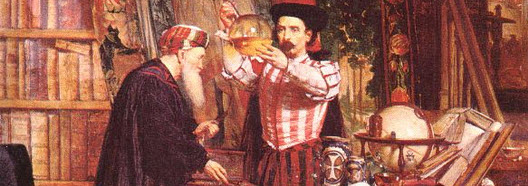Heat
Heat is a good unit to cover towards the end of the course, because it touches on a lot of different ideas from the rest of the year. In this unit, students will gain a better understanding of what exactly heat is, how we measure it, and some specific properties of water that involve heat.
PBS Interactive - Heat Transfer
This interactive website from PBS compares the three different ways that heat is transferred - radiation, conduction, and convection. Common, everyday examples of heat transfer are then shown and students attempt to classify each.
Essential concepts: Energy, heat, kinetic energy, conduction, convection, radiation.
Enthalpy
Purpose: Enthalpy (ΔH) is a measurement of the total amount of energy in a system. For chemical reactions, the enthalpy can change. During an endothermic reaction, energy is absorbed into the system and enthalpy increases. During an exothermic reaction energy is released by the system and the enthalpy decreases. In this worksheet, students will calculate the total enthalpy of some sample chemical reactions.
Essential Concepts: Heat, energy, enthalpy, stoichiometry, chemical equations, exothermic, endothermic.
Activation Energy
Purpose: One important aspect of all chemical reactions is their activation energy -- the amount of energy needed to actually initiate the reaction. In this worksheet, students will look at enthalpy graphs and measure the activation energy of a reaction. They will also see the effect that a catalyst has on activation energy.
Essential concepts: Energy, heat, enthalpy, activation energy, potential energy, exothermic, endothermic.
Mythbusters - Cooling a Six-Pack
Purpose: This is a perfect segment of Mythbusters to show for this unit. They experiment on several different methods of cooling a six-pack of beer from room temperature to just a little above freezing to see which one is the fastest and most economical. Students will apply concepts of heat, heat transfer, and even do a little work with exothermic and endothermic reactions.
Essential concepts: Heat, energy, enthalpy, chemical reactions, combustion, exothermic, endothermic, conduction, convection, radiation.
Mythbusters - Exploding Port-a-Potty
Purpose: This segment of Mythbusters takes on a pretty silly myth -- the idea that the decomposition of human waste in a port-a-potty could generate enough combustible gas (e.g. methane) to cause a potential explosion. While the myth is busted, there are a lot of opportunities to talk about enthalpy and activation energy within a combustion reaction.
Essential concepts: Heat, energy, enthalpy, exothermic reaction, combustion, activation energy, potential energy.
NOVA: Absolute Zero - Conquest of Cold Worksheet
Purpose: This is the first of a two-part NOVA documentary special covering the ability of humans to generate cold. I show this episode because it does an excellent job of outlining some of the major experiments and inventions that allowed us to control heat and cold, including the thermometer and refrigerator.
Essential concepts: Heat, energy, conduction, calorimetry, thermometers, temperature, Laws of Thermodynamics.
Specific Heat
Purpose: Specific heat is a physical property. It measures how much energy (in Joules) is required to raise one gram of a substance by one degree Celsius. In this worksheet, students will use the specific heat equation (Q = mcΔT) for a variety of different problems.
Essential concepts: Specific heat, energy, Joules.
Specific Heat and Phase Changes
Purpose: This is a follow-up to the specific heat worksheet. In these problems, students will be working only with water. They will calculate the total heat required to raise the temperature and change water from one phase to another.
Essential concepts: Specific heat, heat of fusion, heat of vaporization, phase change.
Heat and Enthalpy Study Guide
Purpose: Once the instruction for the unit is completed, students can complete this study guide to aid in their preparation for a written test. The study guide is divided into two sections: vocabulary and short answer questions. The vocabulary words can be found scattered throughout the different instructional worksheets from this unit. The short answer questions are conceptual and meant to see if the students are able to apply what they've learned in the unit.
